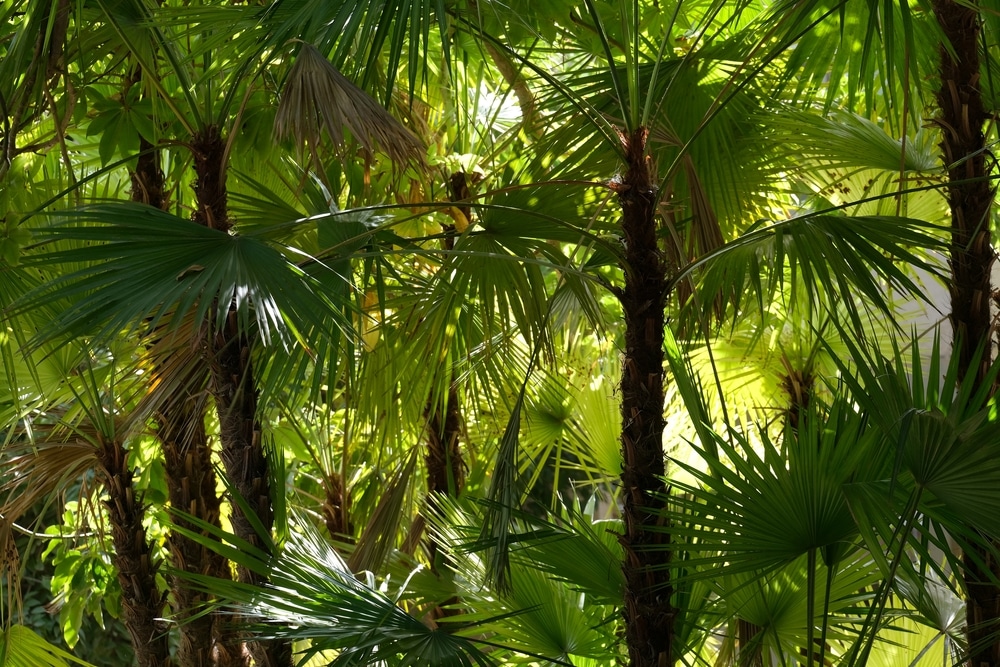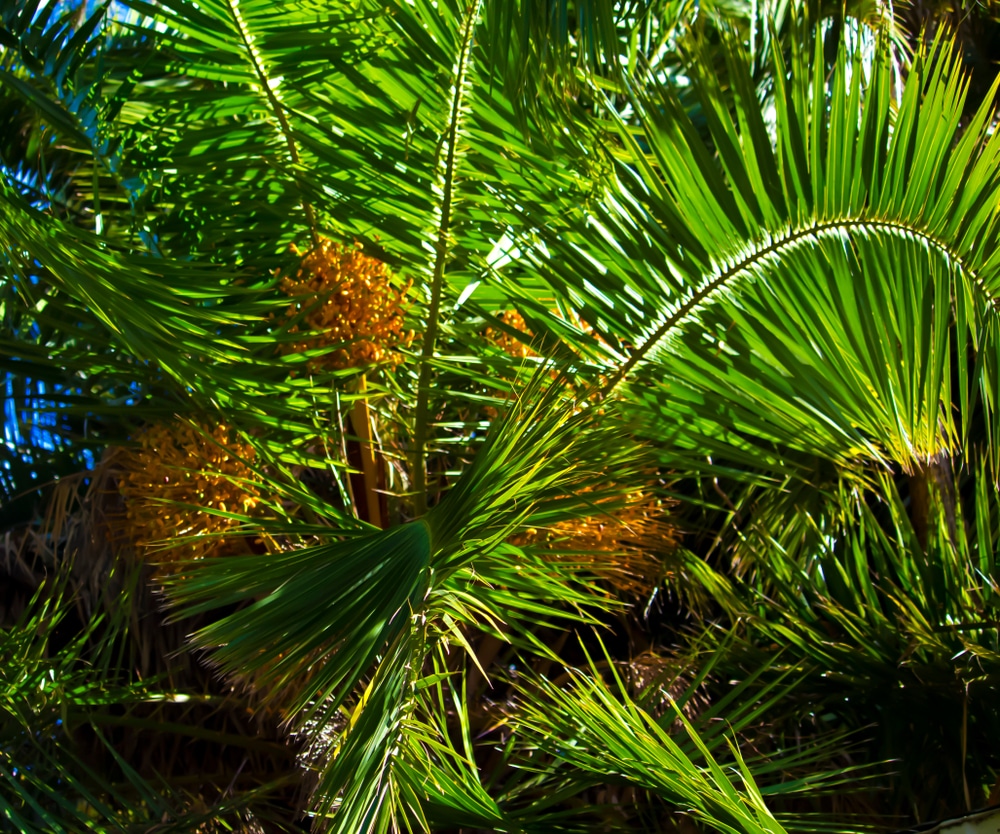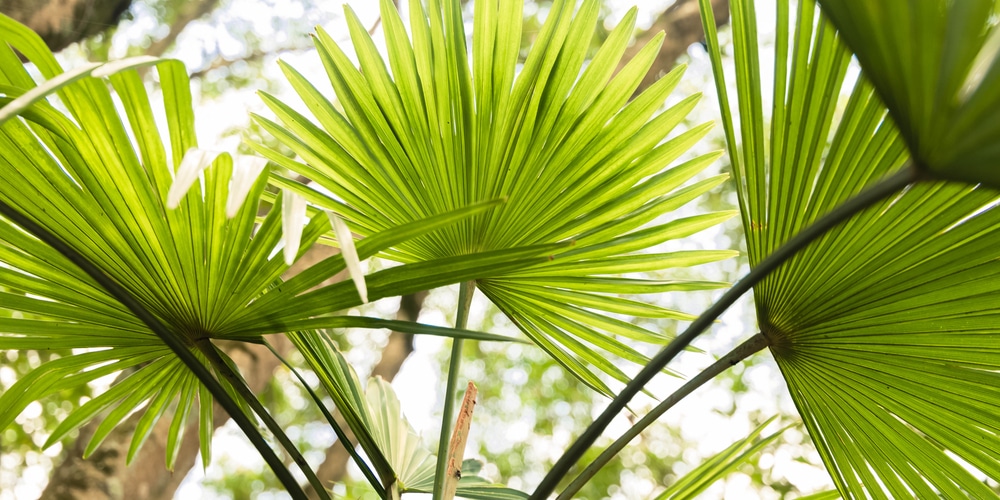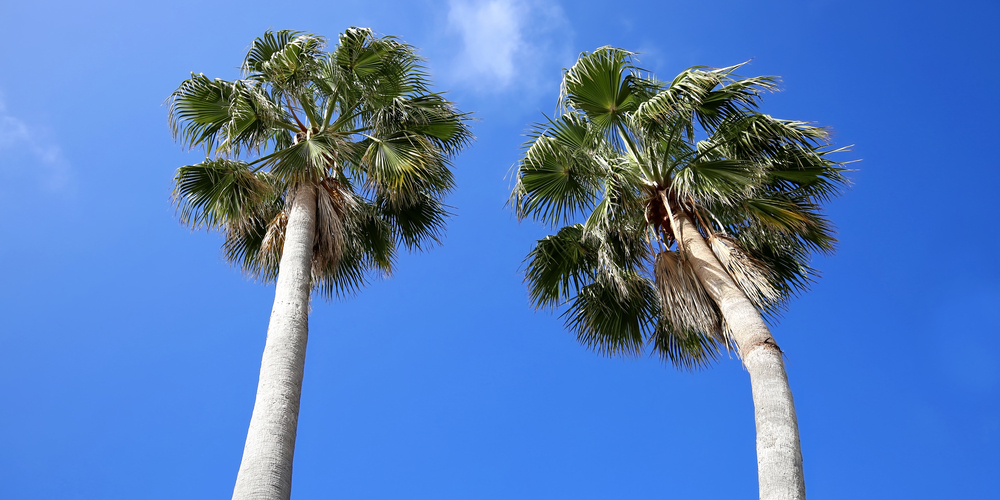Tampa has ideal weather for many kinds of palm trees to grow and flourish. Many natives of Tampa choose to grow palm trees in their yards, and the city landscape also naturally produces a wide range of palm trees throughout the area.
In this article, we will cover some of the most common palm trees in Tampa. These trees account for over 90% of the documented palms. Let’s check it out.
Pindo Palm
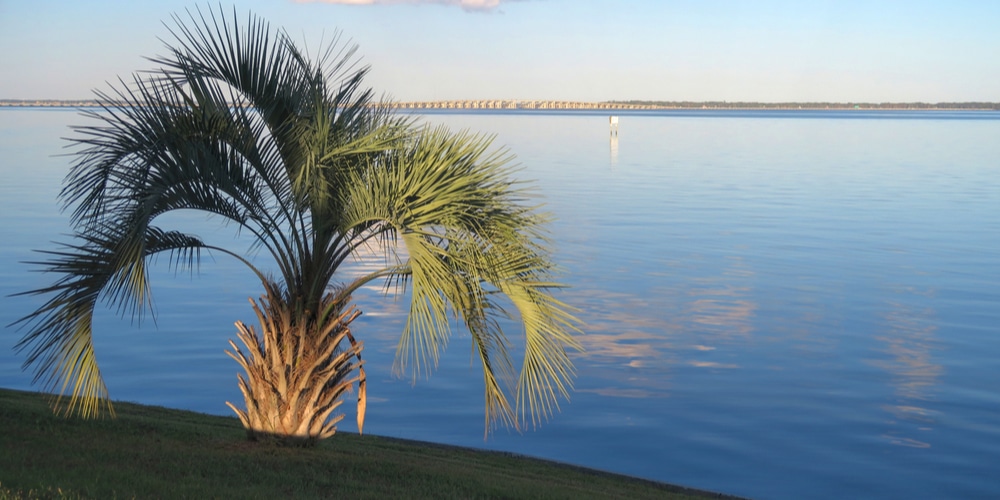
The Pindo Palm is native to Brazil and thrives in high-drought weather with full sun or partial shade. They grow to 15-20 feet tall with a thicker trunk that usually measures around 1.5 feet in diameter.
The leaves of a Pindo Palm typically arch down towards the ground, with long, sharp leaflets attached to one step to form a pinnately compound. During the summer, Pindo Palms produce an orange, round fruit.
Paurotis Palm
Native to Cuba, South Florida, the West Indies, and Central America, you can find the Paurotis Palm in parts of Tampa with partial shade or sun exposure. Usually, these palms grow 20-30 feet tall and produce a reddish-orange fruit that turns black when ripe.
In the spring and summer, the Paurotis Palm begins to bloom small, pale-yellow flowers in clusters. The leaves of the Paurotis Palm are green and fan-shaped with sharp blades.
Canary Island Date Palm
Canary Island Date Palms are native to the Canary Islands and can grow up to 65 feet tall. These palms grow 1 foot a year. Their small white flowers bloom in the winter and spring months while also producing orange oblong fruit. Canary Island Date Palms have compound leaves with V-shaped leaflets. Their trunks are typically 2-3 feet thick.
Date Palm
The Date Palm is native to northern Africa and the Middle East and is a close relative to the Canary Island Date Palm tree. The Date Palm can grow up to 100 feet with a trunk that can be from 1-3 feet thick. These palms produce flowers and fruits all year, producing dates that turn reddish-brown when they are ripe. Similar to Canary Island Date Palms, the Date Palm has compound leaves with V-shaped leaflets.
Senegal Date Palm
Senegal Date Palms are native to Madagascar and other parts of Africa. These palms prefer full sun with partial shade and well-drained soil but are considered incredibly invasive. Senegal Date Palms produce light shade with their sinking tree shape, growing up to 35 feet tall. During the spring and summer, these palms produce small white flowers and oval-shaped fruit.
These palms are not recommended to be planted in Florida due to their high levels of invasiveness.
Chinese Fan Palm
Chinese Fan Palms are native to the Japanese Islands, southern China, and Taiwan. These palms grow slowly but can reach a height of around 30-40 feet. Chinese Fan Palms enjoy the full sun with partial shade and well-drained soil. Blooming in the spring, Chinese Fan Palms produce an oblong, blue-green fruit. Chinese Fan Palms are considered invasive in Florida and Hawaii.
Although they are common in Tampa, officials work to contain the tree to prevent invasion.
Cabbage Palm
Cabbage Palms are native to the Carolinas, Georgia, Florida, the West Indies, and Cuba. These palms can grow to a height anywhere between 40-90 feet, depending on their surroundings, preferring full sun or partial shade and wet to well-drained soil.
Their trunks are only around 10-15 inches thick with leaves growing around them. Cabbage Palms produce a small, round, and black fruit from late summer to early winter. In the late spring, Cabbage Palms produce tiny white flowers.
Final Thoughts
So what types of palm trees grow in Tampa? Now you know. Tampa is home to many kinds of palm trees, adding a lush beauty to the city and its environment.
